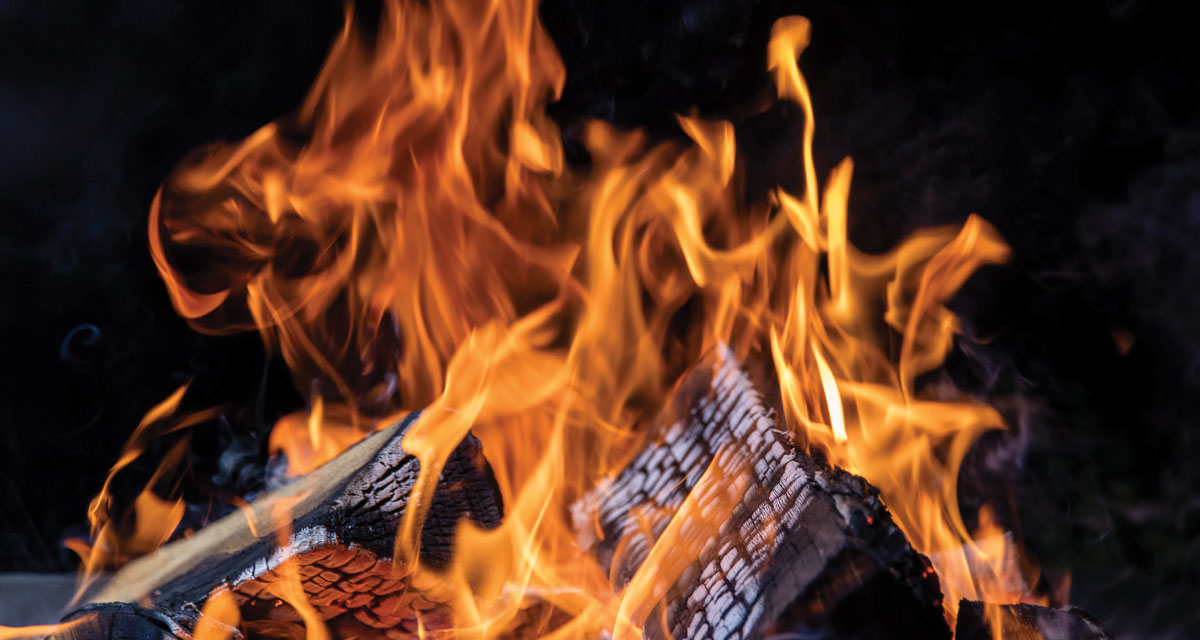“What-if?” the worrisome words, arrive constantly in the consciously spinning topics in our minds, from safety and financial security to loved ones and pet health. Asking, “What can I do?” leads to a proactive decision to invest time in the ultimate insurance policy—valuable life skills comprising security, shelter, food, water, and medical care! In any emergency, from extreme weather to a personal disaster, you have the power to take charge of your fate by making plans and taking action!
Electricity flickers, and at times, the lights go out for an extended time, such as days, to the cringe-worthy words, a week.” Without an alternative, homeowners must either remain in the house and survive the cold, or leave. Rather than wait until the next outage, consider trying one of the following ways to heat the home without a power source.
Bricks and Stones, Terracotta Pots
Did you know bricks and rocks can transition into a source of portable radiant heat? First, create a campfire and heat them for at least 45 minutes before dropping the bricks into the only container which maintains its shape while not releasing toxic fumes—a stainless-steel pot. The container will require a heatproof and fireproof platform, such as bricks. Covering the pot allows it to exude heat, but for only so long.
Similar is the terracotta pot theory. Place two to three pots inside each other, allowing space between the walls for air to move freely. From one tealight candle, the pot will eventually absorb and radiate heat. Be patient; it takes time for this method to work even in a small room.
Gas Fireplace Heater
The annual cost of filling a propane tank may be one reason homeowners discount investing in a tank and appliances. In moments of failed electricity, imagine having the option of using the gas range and ventless heater. To turn on, simply press a button. Homeowners will need to ensure their propane levels from the outdoor tank remain above 30%.
Tip: Gas fireplaces come in self-contained units or as fireplace inserts. Cost is low and affordable.
Tip: A propane heater with a catalytic converter is a small unit free of carbon monoxide. It is safe for use in closed spaces with little ventilation.
A Heating Appliance
The fireplace is a romantic investment, whether it includes a mantel and hearth or is a free-standing unit, such as a wood-burning or pellet stove containing a stovepipe. Regardless of the type of stove, the most popular choice includes a glass panel enabling fire-lovers to enjoy the calming ambiance of those hypnotic dancing flames. In moments of emergency, maintaining warmth will help every member of the household to remain calm.
Due to the changes in regulations, it may be challenging to find an available stove; therefore, if you are interested in a non-electrical heating source, it’s best to start shopping now!
Tip: Propane is a viable alternative to securing and keeping a cord of wood.
Tip: Certified chimney cleaning companies offer advice and assistance with new installations.
Gas Generator
Owning a generator is the ultimate insurance policy. Homeowners who dislike the disruption of all powered systems choose to install a standby generator, which turns on and off automatically. A secondary option and less expensive one is a “portable generator,” including a cage, handlebars, and wheels. Depending on its surge wattage, the unit could maintain between four and six appliances, such as a refrigerator, chest freezer, one burner on the range, a television, lights, and the water pump. A licensed electrician can assist by installing a transition switch, allowing the generator to distribute power to multiple electric circuits in your home.
Every appliance is not just an investment, but a promise of savings to come. Perhaps these savings will be defined as time, energy, and peace of mind. Start researching today to look for a heating system that will satisfy your needs, budget, and goals.
Next Month: Vital Survival Skills



















